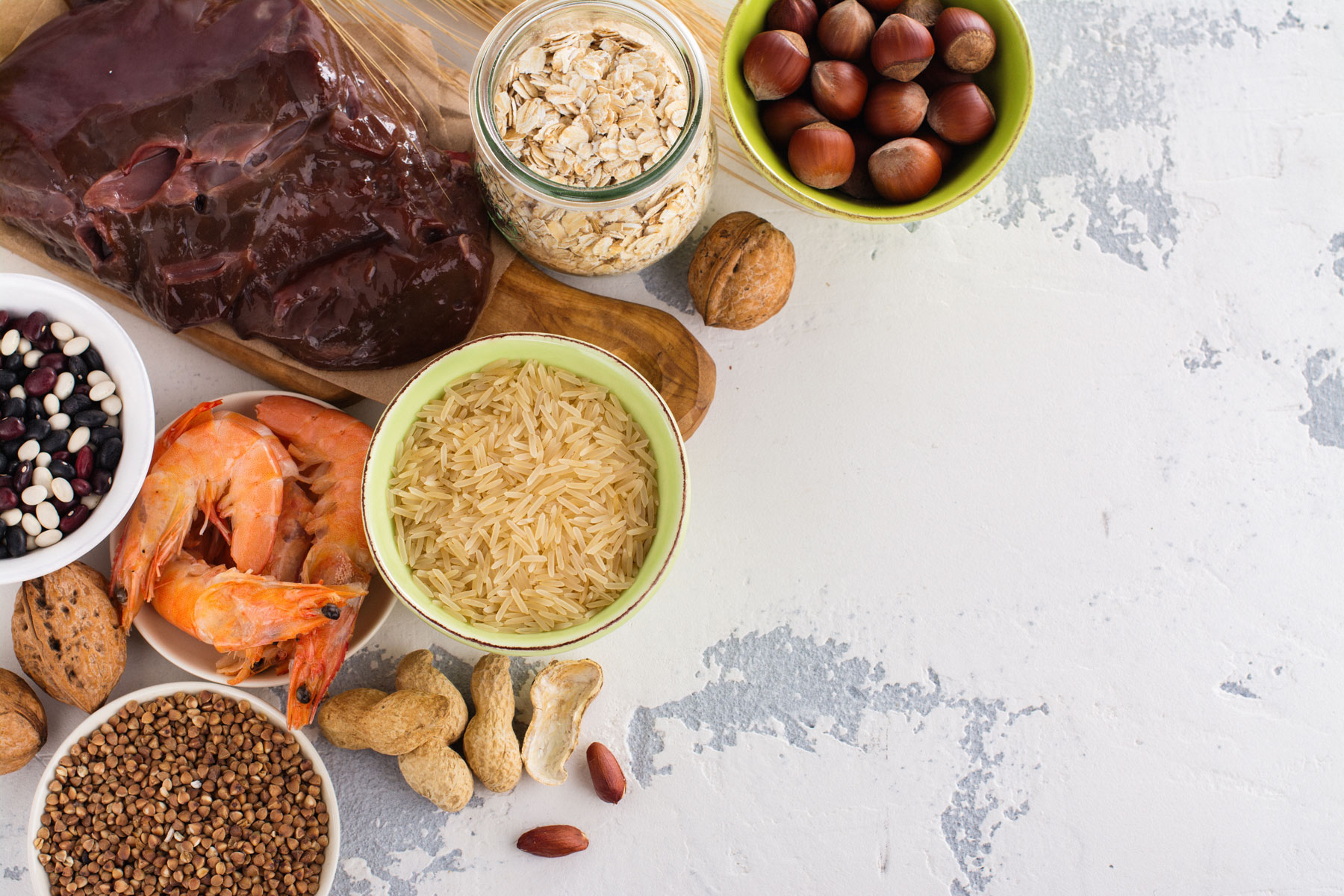Copper is an essential trace mineral found in most parts of the human body. Copper is in almost every cell and plays a vital role in many bodily functions, making it imperative for our survival. Adding the supplement Copper Gluconate to your daily regimen is one way you can increase the level of copper in your diet. There is a difference, however, between copper and copper gluconate. Copper gluconate is water soluble, allowing it to be absorbed by the body.
What Are The Benefits Of Copper Gluconate?
There are many advantages to adding copper gluconate to your daily regimen. Here are some of the benefits:
- Supports our Immune System.
- Supports our Nerve Health.
- Produces Red Blood Cells.
- Forms Collagen.
- Protects Our Cells From Damage.
- Helps Iron To Be Absorbed.
- Helps Turn Sugar Into Energy1.
Let’s take a deeper look into some of these benefits and see precisely how copper or a supplement of copper gluconate performs these tasks within our bodies.
Iron And Copper Form Red Blood Cells
The intake of copper in our diet or with a copper gluconate supplement enables our body to form red blood cells in conjunction with iron. This is valuable to maintain the health of our blood vessels, bones, and nerves and aids in forming hemoglobin. Considered to be the most crucial component of the red blood cell, hemoglobin is a protein that carries oxygen. Low hemoglobin levels can lead to anemia, a lack of healthy red blood cells that carry oxygen from the lungs to our body’s tissues2.
There are various reasons why your hemoglobin might be low, some of which include:
- Bleeding in the Digestive Tract.
- Donating Blood too Frequently.
Supplementing with copper gluconate will boost the production of healthy red blood cells, which will have a domino effect of positive reactions within your body. The most important is that red blood cells bring oxygen to the tissues in the body, especially to the lungs, where it is released as carbon dioxide3.
Copper And The Formation Of Collagen
Collagen is a common protein that is found in every part of our body. From our muscles, tendons, and skin to our bones and cartilage, collagen is present. Learn more about Collagen here. Without copper, the connective tissues would be weak, and we would not be able to support the weight of our bodies. When collagen is formed, copper is critical in the last stage of a process called “enzymatic cross-linking.” The collagen molecules link together to form connective tissue; copper is the nutrient that makes this final stage possible.
An interesting fact about collagen supplements is that they rarely contain copper, even though copper is a critical part of collagen formation. When looking at the packaging of collagen supplements, you will rarely see copper as an ingredient (always check the ingredients on packaging labels). Ensuring you have the proper intake of copper is essential to your health4.
Foods That Are Rich In Copper
Some of us are on many supplements and medications, and an additional supplement may not be a viable option. The standard American diet tends to be low in copper unless you are vegetarian or vegan. Here are some natural foods that contain copper:
- Organ Meats (Liver).
- Beans
- Nuts
- Whole Grains.
As you can see from this list, this is far from what you would call the “Standard American Diet,” but these foods could easily be added to your diet to raise your copper levels. Slight changes, such as adding nuts and more whole grains to your diet, can significantly impact your overall health.
Copper And Production Of Energy In Our Body
Copper promotes and facilitates the absorption of iron in our bodies. This allows cells to use the energy available in carbohydrates, fats, and proteins. A study at the “Department of Energy’s Lawrence Berkeley National Laboratory” in California found that copper was crucial in metabolizing fat. Although these studies are ongoing, they are beginning to see a connection between the amount of copper in our system and its ability to break down fat5.
Supplementing With Copper Gluconate
Cookware made from copper can also bring trace amounts of this mineral into your food. The general Recommended Daily Intake (RDI) for copper gluconate depends on factors such as age, sex, and physical condition. Remember to always check with your doctor before beginning any supplement regimen.
Copper, once associated with electrical work, electronics, and plumbing, is now being taken as a dietary supplement due to its critical importance to the proper functioning of multiple systems within our body. We, as humans, are hardwired this way.
Contact your sales rep. or email us at sales@vitajoyusa.com to take advantage of special pricing.
**These statements have not been evaluated by the FDA. This product is not intended to diagnose, treat, cure or prevent any disease.
References:
- Health Benefits and Risks of Copper, https://www.medicalnewstoday.com/articles/288165.
- The Role Of Copper In Erythropoiesis, https://www.ncbi.nlm.nih.gov/books/NBK224294/.
- Function of Red Blood Cells, https://my.clevelandclinic.org/health/body/21691-function-of-red-blood-cells.
- How Copper Can Help You Build Stronger Collagen, https://resyncproducts.com/blogs/resync-blog/how-copper-can-help-you-build-stronger-collagen.
- Copper Is Key In Burning Fat, https://www.sciencedaily.com/releases/2016/06/160606200439.htm.
